Return of the Killer Bs
Like most of the civilized world (How is that for hubris?) we spent some meaningful time recently ogling Google, or more precisely, ogling their S-1 filing. Flipping straight to the financials — for us that’s the functional
equivalent of the centerfold in a men’s magazine — we were astounded. Look at that revenue growth! What about those bodacious cash flows! We must confess it had our sap rising, so to speak. Then, just to be thorough,
we went back to the beginning and began to read.
There on page three was the description of “Class A common stock” that gets one vote and “Class B common stock” that gets 10 votes. We kept reading, looking for the part of the offering that would allow us to buy the “B shares.” Oops. We found that those shares are reserved, in perpetuity, for the heads of this corporate monarchy. Further on is their chatty “Letter from the Founders,” where they postulate that the B shares have the same economic rights, just different voting rights, forgetting that we all know that votes have economic value. This is sort of like the pig’s contention in Orwell’s Animal Farm that all animals are equal, just some are more equal than others.
Savvy institutional investors are screaming foul. TIAA-Cref is expecting a “significant discount” due to the share structure. What they are referring to is the fact that investors are being offered a minority interest in a closely held firm. Typically, the nonvoting A shares in this type of structure would be discounted 40 to 50 percent, compared to the shares with real voting rights. Here is why. Suppose your nephew Ralph, who owns an auto body shop, comes to you for an equity investment to buy new equipment. He says he’ll sell you a 20-percent interest, but he will retain 80 percent of the shop. If the governance of the shop is based on a majority vote, your share vote counts not at all. Ralph can do whatever he wants. Increase his pay. Put his cars and houses on the company books. And you have no influence. This is what Google is doing — hence the moniker “Killer B Shares.” The only difference in the case of Google is that there will be lots of other fools . . . er . . . investors putting money into the auto body shop. Thus, it’s likely that you will be able to unload your shares on one of these other sorry souls at some price if you become unhappy with the prospects or the management of the auto body business.
It’s possible that in their naïveté they do not recognize the hilarious juxtaposition of their “for every man” Dutch auction issuance mechanism with this “aristocratic” share arrangement. In effect, Google is launching the greediest IPO structure in recent memory. As noted above, this apparent greed comes wrapped in a collection of platitudes and aw shucks-Buffet-like homilies about how Google is “not a conventional company,” and they are “managing for the long term.” They don’t want to pay attention to “Wall Street” they say (i.e., those of us with inadequate IQs who decided to plunk down a couple of hard earned dollars to get a piece of Google). Didn’t their advisors tell this high-minded crew that this dual share class nonsense is typically reserved for family firms, funky pink sheet plays, and media companies? Other than entrenching management for the long term and cramming down any new shareholders, the Killer Bs also allow them to avoid all the tough new corporate governance rules. Comcast recently announced that they would thumb their nose at the NYSE requirements for adding independent directors to the board and the audit committee. Comcast can do this because of their Killer Bs. Bad governance practices should bring a discount to the stock price, and, in most instances, they do.
In that regard, Google’s governance track record is anything but stellar. One problem: they are currently struggling with the issuance of 35.5 million shares and options from 2001 to 2004 not properly qualified or registered, in possible violation of federal and state securities laws. Their S-1 states that they will attempt to rescind these sales via a rescission offer at 95 cents per share after the IPO. But with shares trading well north of that price after the offering, who is going to rescind? Won’t this ultimately cost the company more than the $34 million they are projecting? This innocence from those that are “more equal” than the rest of us may be charming, but it could prove costly.
– Jim Anderson
Jim Anderson, CFA
Jim Anderson is Chief Investment Officer for SVB Asset Management, a wholly owned subsidiary of Silicon Valley Bank. SVB Asset Management provides fixed income asset management services to technology and life
sciences companies. He is also a founder and Managing Director of SVB Securities, Silicon Valley Bank’s brokerdealer subsidiary. These groups have total client assets in excess of $9 billion. Mr. Anderson is also a member of the company’s Asset Liability Committee, which has responsibility for strategy and management of the Bank’s $1.6 billion investment portfolio. He chairs the Investment Committee of SVB Asset Management. Jim is also the editor of the weekly SVB Securities newsletter, Investment Strategy Outlook, and the “Return of the Killer
Bs” article is an excerpt from the May 10, 2004 edition.
About Silicon Valley Bancshares
For 20 years, Silicon Valley Bancshares, a financial holding company offering diversified financial services, has provided innovative solutions to help entrepreneurs succeed. The company’s principal subsidiary, Silicon Valley Bank, serves emerging growth and mature companies in the technology, life sciences markets and private equity markets, as well as the premium wine industry. Headquartered in Santa Clara, Calif., the company offers its clients financial products and services including commercial, investment, merchant and private banking, and private equity services, as well as value-add services using its knowledge and networks. Merger, acquisition, private placement and corporate partnering services are provided through the company’s investment banking subsidiary. More information on the company can be found at www.svb.com.
SVB Asset Management is a registered investment advisor and non-bank affiliate of Silicon Valley Bank established in 2002. SVB Asset Management manages short-term, fixed income investments for primarily U.S.-based corporate clients. Investment products offered through SVB Asset Management are not insured by the FDIC or any other federal government agency. They are not deposits of or guaranteed by Silicon Valley Bank, or any bank affiliate, and may lose value. SVB Asset Management claims compliance with the AIMR Performance Presentation Standards. (AIMR-PPS®), the U.S. and Canadian version of GIPS®. AIMR has not been involved with or reviewed SVB Asset Management’s claim of compliance. To receive a complete list and description of SVB Asset Management’s composites and/or a presentation that adheres to the AIMR-PPS standards, contact Adam Dean, 408.654.7415, adean@svbassetmanagement.com. SVB Securities is a non-bank affiliate of Silicon Valley Bank, Member NASD, SIPC. Investments not FDIC-insured, no bank guarantee, and may lose value.

























